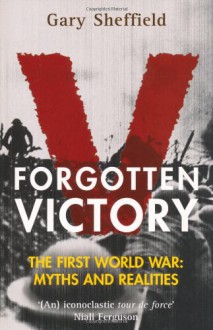The Trip:
* Chiltern Hills and Thames Valley (to mystery lovers, aka "Midsomer County" -- though given that this is an area chock-full of quintessential(ly) English villages, it's no surprise that it also routinely provides locations for other series, such as Inspector Morse, The Vicar of Dibley, and of course, adaptations of Agatha Christie's mysteries ... Christie herself, after all, also spent her last years in this area, in a village just outside of Wallingford, where she is also buried.)
* Chawton: Jane Austen's home
* Gloucester and Malmesbury
* The Welsh Borderland: The Welsh Marches, Herefordshire, and Shropshire
* Bosworth and Leicester
* East Anglia: Norfolk, Ely, and Stour Valley (aka [John] Constable Country)
The Souvenirs:
* Jane Austen:
- Pride and Prejudice -- an imitation leather-bound miniature copy of the book's first edition
- Lady Susan -- audio version performed, inter alia, by Harriet Walter
- Teenage Writings (including, inter alia, Cassandra, Love and Freindship, and The History of England)
* Terry Townsend: Jane Austen's Hampshire (gorgeously illustrated hardcover)
* Hugh Thomson:
- Illustrations to Sense and Sensibility, Northanger Abbey, and Persuasion
- Illustrations to Mansfield Park and Emma
* Pen Vogler: Tea with Jane Austen
... plus other Austen-related bits, such as a playing card set featuring Hugh Thomson's illustrations for Pride and Prejudice, Sense and Sensibility, Emma, and Persuasion, two Austen first edition refrigerator magnets, two "Austen 200" designer pens, a Chawton wallpaper design notepad, and a set of Austen-related postcards.


* Margery Kempe: The Book of Margery Kempe
* Julian of Norwich: Revelations of Divine Love
(have read bits of pieces of both, but never yet the whole thing(s) -- something to be remedied soonish)
* Margaret Sanders (ed.):
- Letters of England's Queens
- Letters of England's Kings
("Queens" looks decidedly more interesting, but I figured since there were both volumes there ... Unfortunately, neither contains any Plantagenet correspondence, though; they both start with the Tudors.)
* Terry Jones: Medieval Lives
* Ian Mortimer:
- The Greatest Traitor: The Life of Sir Roger Mortimer, Ruler of England 1327-1330
- 1415: Henry V's Year of Glory
* Chris Skidmore: Bosworth -- The Birth of the Tudors
* David Baldwin: Richard III
* Richard Hayman: The Tudor Reformation
* Glyn E. German: Welsh History
(The last two are decidedly more on the "outline" side, but they're useful as fast, basic references)
* Martin Gayford: Constable in Love -- the painter John Constable, that is.
* Andrea Wulf: The Invention of Nature (yeah, I know, late to the party, but anyway ... and at least I got the edition with the black cover!)
* Chris Beardshaw: 100 Plants that almost changed the World (as title and cover imply, nothing too serious, but a collection of interesting tidbits nevertheless)
* Niall Ferguson: The House of Rothschild -- The World's Banker, 1849-1999

* Michael Jecks, Knights Templar:
- The Leper's Return
- The Boy-Bishop's Glovemaker
- The Devil's Acolyte
- The Chapel of Bones
- The Butcher of St. Peter's
- The Malice of Unnatural Death
* Shirley McKay: Hue & Cry (a mystery set in Jacobean St. Andrews, Scotland)
... and finally, two present-day mystery/thrillers, just to balance off (well, not really, but anyway ...) all that history:
* Jo Nesbø: The Snowman
* Michael Connelly: The Late Show
... plus several more mugs for my collection (because I clearly don't own enough of those yet), two Celtic knot bookmarks, a Celtic knot T-shirt, a Celic knot pin, a Celtic knot designer pen (can you tell I really like Celtic knot designs?), assorted handmade soaps and lavender sachets, and assorted further postcards and sticky notes, plus in-depth guidebooks of pretty much every major place I visited (which guidebooks I sent ahead by mail before leaving England, so they're currently still en route to my home).
ETA:
Oh, and then there's John le Carré's The Pigeon Tunnel, which I bought at the airport right before my departure and am currently reading. Books that you buy at the departure for a trip do qualify for a vacation book haul, don't they?



 Log in with Facebook
Log in with Facebook 


















